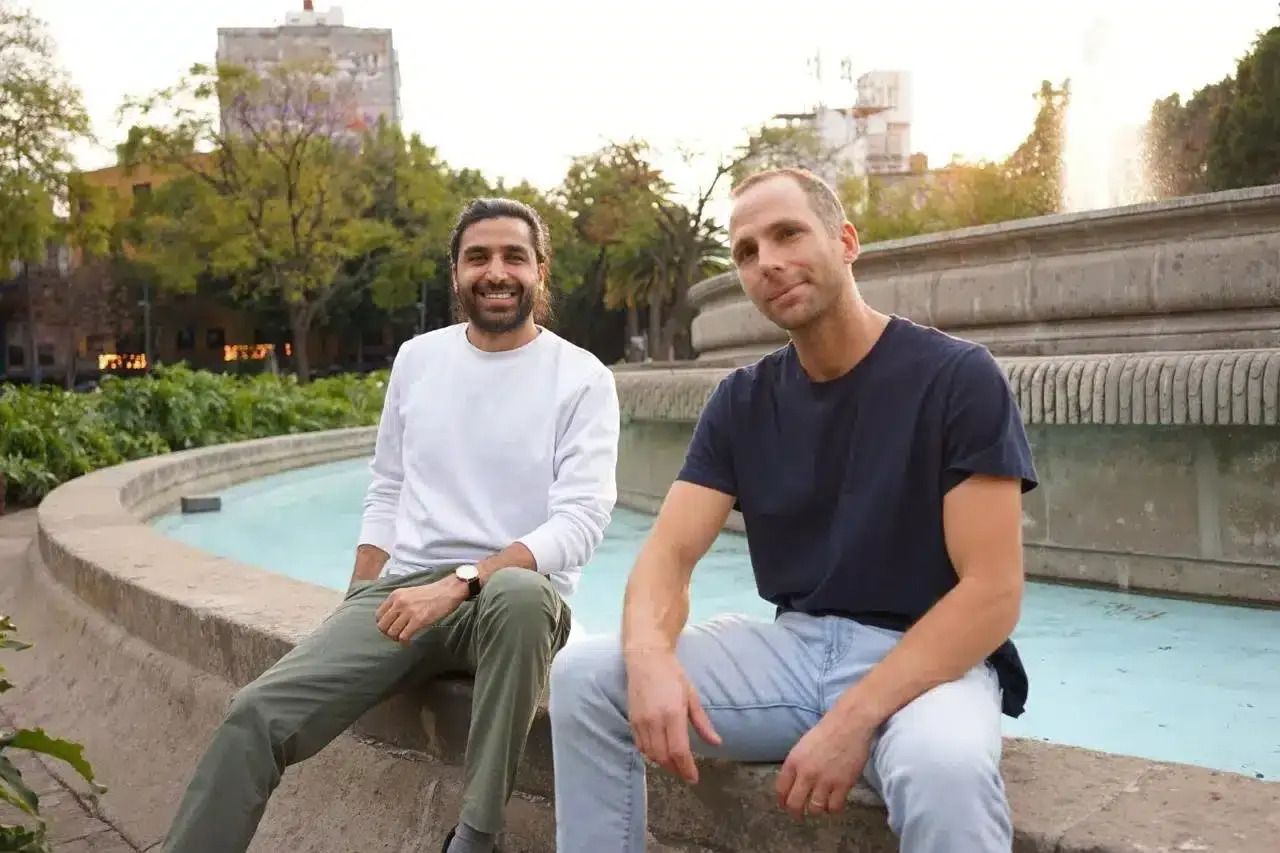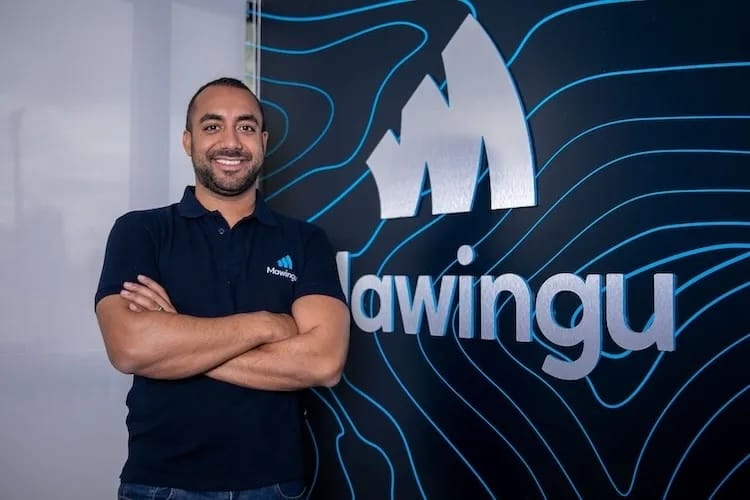- Innovation Village Newsletter
- Posts
- 🚙 Your Family Can Now Ride on Your Bolt Tab
🚙 Your Family Can Now Ride on Your Bolt Tab
Plus: 💵 Kenyan BNPL startup Wabeh shuts down

Today’s Menu ☕️
🚙 Bolt launches Family Profile in Nigeria to simplify shared rides
💰 Rwazi Lands $12M Series A to Scale AI-Driven Consumer Data Platform
💵 Kenyan BNPL startup Wabeh shuts down amid mounting defaults and cash crunch
💰 Rally Cap partially exits Stitch after $55M Series B round
🛜 PRIF II to acquire controlling stake in Kenyan ISP Mawingu Networks
👟 How Crocs Turned ‘Ugly’ Into a Billion-Dollar Brand
If you haven't subscribed, join over 7,000 people curious about Innovation, New Products, New Technologies in Africa.
🚙 RIDE-HAILING
Bolt launches Family Profile in Nigeria to simplify shared rides

Bolt has launched a new Family Profile feature in Nigeria, allowing a single user to manage and pay for rides for up to nine others under one account. Designed to meet Nigeria’s communal and multi-generational mobility needs, the feature brings more convenience and control to families and small support networks. Each added member can request rides independently via their own Bolt app, while the primary account holder sets budgets, tracks trips, and maintains full financial oversight.
The move addresses inefficiencies in informal ride coordination, which previously accounted for 2–6% of Bolt trips in Nigeria. The Family Profile eliminates the need for back-and-forth calls, manual tracking, or payment issues—especially for older adults or less tech-savvy users.
Only verified users aged 18 and above can be added, with strict rules preventing unaccompanied minors. The update builds on Bolt’s existing safety features and reflects a 42% drop in offline rides, showing growing trust in digital solutions. With this launch, Bolt reinforces its commitment to safe, inclusive, and localized mobility in Nigeria....…...…continue reading
Stay up-to-date with AI
The Rundown is the most trusted AI newsletter in the world, with 1,000,000+ readers and exclusive interviews with AI leaders like Mark Zuckerberg, Demis Hassibis, Mustafa Suleyman, and more.
Their expert research team spends all day learning what’s new in AI and talking with industry experts, then distills the most important developments into one free email every morning.
Plus, complete the quiz after signing up and they’ll recommend the best AI tools, guides, and courses – tailored to your needs.
💰 INVESTMENTS
Rwazi Lands $12M Series A to Scale AI-Driven Consumer Data Platform

Rwazi has secured $12 million in Series A funding to expand its AI-powered consumer intelligence platform. Led by Bonfire Ventures—with backing from Santa Barbara Ventures, Newfund, and Alumni Ventures—the round will boost Rwazi’s data infrastructure, grow its engineering team, and enhance real-time insight capabilities. Founded in 2021 by Joseph Rutakangwa and Eric Sewankambo, Rwazi specializes in zero-party data—real-time, voluntarily shared consumer behavior data gathered from 190 countries.
The startup fills a longstanding data gap in emerging markets, offering validated insights where traditional sources like government stats or syndicated reports fall short. Its clients include major global brands such as Coca-Cola, Visa, Nestlé, and Pampers. Unlike legacy firms like GFK or Ipsos, Rwazi combines visibility with action through its AI co-pilot, helping businesses make smarter decisions.
Rutakangwa emphasized their mission: “Insight should come from consumers’ lives, not just models.” With a strong U.S. and European client base, Rwazi is redefining global market intelligence—from Africa to the world.........…continue reading
💵 CREDIT
Kenyan BNPL startup Wabeh shuts down amid mounting defaults and cash crunch

Wabeh, a Kenyan buy-now-pay-later (BNPL) startup, has shut down due to mounting customer defaults and severe cash flow issues. The company, which aimed to make smartphones more accessible through flexible payment plans, quickly gained traction among low- and middle-income earners. Customers paid a 30% deposit and repaid the balance in instalments. Wabeh partnered with retailers and phone manufacturers like Transsion Holdings (TECNO, Infinix) and made revenue from device markups rather than interest.
However, its growth was undermined by rising non-repayments—less than half of customers repaid as agreed. The company lacked formal credit lines and couldn’t recover funds due to operating outside Central Bank of Kenya (CBK) regulations. Attempts to deter defaults using remote phone-locking software failed, and many users abandoned or damaged their devices.
Wabeh’s fall highlights the risks of unregulated BNPL services. A pending bill in Parliament may soon require BNPL providers to obtain CBK licences. While the Kenyan BNPL market continues to grow, Wabeh’s collapse underscores the need for stronger regulation and risk controls.........…continue reading
💰VENTURE CAPITAL
Rally Cap partially exits Stitch after $55M Series B round

Rally Cap Partners
Rally Cap, a venture capital firm focused on emerging markets, has partially exited its investment in South African fintech Stitch following Stitch’s $55 million Series B round. While financial details remain undisclosed, the exit marks a notable milestone for Africa’s maturing VC landscape. Founded in 2020 by Hayden Simmons, Rally Cap evolved from an investment collective to launching a $30 million debut fund in 2022, and a $5 million climate tech fund in 2024—reflecting growing interest in sustainability ventures.
Rally Cap’s African portfolio includes startups like Termii, Circadian, and Precium, with Stitch being a standout. Stitch has rapidly grown into a key player in fintech infrastructure, acquiring ExiPay and Efficacy Payments in 2025 to enhance in-person and card payment capabilities. Its Series B round attracted investors such as QED Investors, Flourish Ventures, and Trevor Noah.
Rally Cap’s partial exit reflects a broader trend of increasing startup exits in Africa, joining recent success stories from Oui Capital and Silverback Holdings. The move signals real liquidity pathways and the growing global credibility of African tech innovation.........…continue reading
🛜 INTERNET
PRIF II to acquire controlling stake in Kenyan ISP Mawingu Networks

Farouk Ramji, CEO Mawingu
Pembani Remgro Infrastructure Fund II (PRIF II), a South Africa-based private equity fund, is set to acquire a 35% equity stake in Kenyan internet service provider Mawingu Networks. This move would give PRIF II a controlling interest, marking a major step in expanding its digital infrastructure footprint in East Africa. The deal is currently under review by the Comesa Competition Commission (CCC), which will assess its potential impact on regional competition.
This follows Mawingu’s recent $15 million debt raise, led by the Africa Go Green Fund, to expand its fixed wireless and fibre services in underserved Kenyan regions and support its acquisition of Tanzanian ISP Habari. Founded in 2013, Mawingu has grown from using TV white space frequencies to adopting scalable fibre and wireless solutions, extending coverage to rural and peri-urban areas.
Now Kenya’s sixth-largest fixed internet provider, Mawingu serves nearly 59,000 users. Backed by DFIs and investors like Microsoft and FMO, it has raised $29 million to date. PRIF II’s investment highlights rising interest in Africa’s growing digital connectivity landscape........…continue reading
👟 FASHION
How Crocs Turned ‘Ugly’ Into a Billion-Dollar Brand

Crocs, once mocked for their quirky design, have grown into a global powerhouse generating over $3 billion in annual revenue and selling in more than 90 countries. Originally designed as boating shoes, their lightweight, easy-to-clean, and comfortable design found favor among professionals like doctors, nurses, and chefs. Rather than trying to conform to fashion norms, Crocs embraced their unconventional look, doubling down on what made them unique.
The brand added colorful options, introduced personalizable charms called Jibbitz, and collaborated with fashion icons and celebrities. This strategy turned what some saw as “ugly” into a bold, recognizable identity. Crocs’ success offers a powerful business lesson: instead of pleasing everyone, stand out and serve a niche deeply. By building loyalty among those who valued comfort over style, Crocs found lasting success.
Their journey underscores the value of differentiation—being unapologetically different can be a winning formula. Crocs didn’t change to fit in—they built a brand that people either loved or ignored, and it paid off...........…continue reading
OTHER STORIES
Five local ESOs join forces with Village Capital to power $4M Africa startup fund……continue reading
African startups invited to apply for the Global TractionBoost Accelerator Programme…….continue reading
What Samsung’s Mobile Phone Crisis Taught Me About Staying In the Game…….continue reading
Do you know you can join and follow us on our WhatsApp Channel?
Did you enjoy this newsletter? Then why don't you forward the newsletter to at least 5 friends to read and subscribe. We’d love to have them aboard too.
Remember that over 7,000 people receive weekly. You can take advantage of this reach by advertising here.
You can reply to this email and send us your news tips, titbits.
Rowland Osahon
Innovation Village

